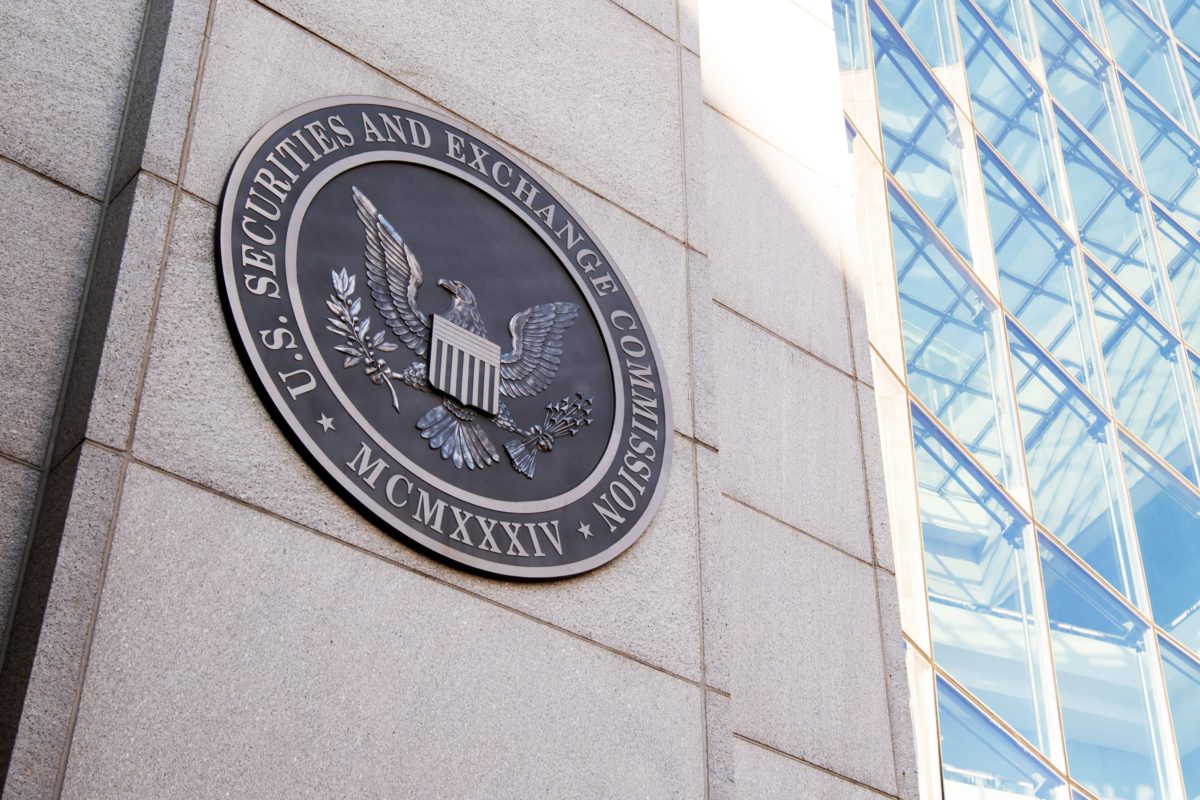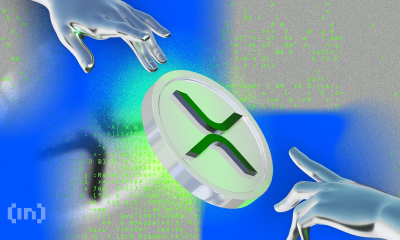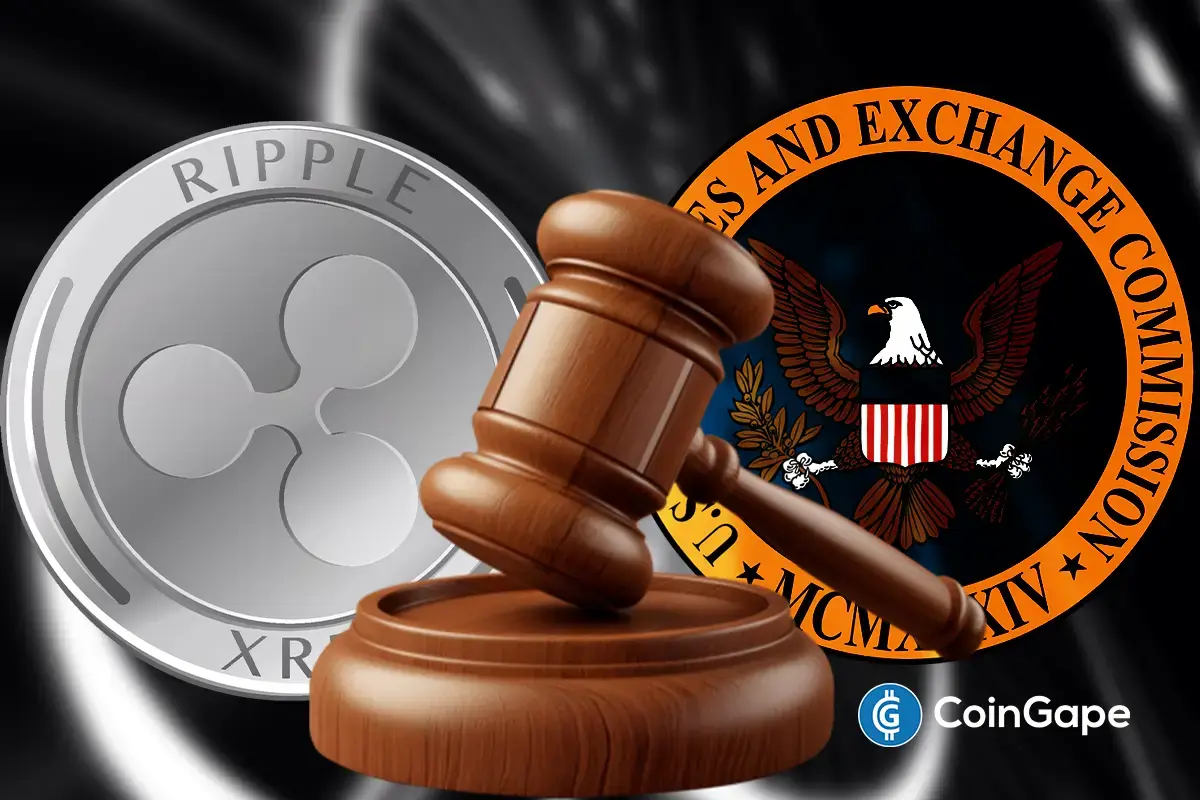Regulation
Ex SEC Official Blasts US SEC Amid Rari Capital Settlement Charges

An ex-SEC official has raised concerns over the regulatory body’s approach to digital assets, coinciding with a recent settlement involving the decentralized finance (DeFi) platform, Rari Capital.
Michael Liftik, an ex SEC official and current partner at law firm Quinn Emanuel, emphasized the agency’s reluctance to issue clear guidelines for digital assets, while pursuing enforcement actions against firms in the sector. His remarks have sparked further debate on the SEC’s regulatory strategy.
Rari Capital Settlement with the SEC
The SEC has announced it had settled charges against Rari Capital and its co-founders. The DeFi platform, which offered yield-bearing services to crypto investors, faced accusations of misleading investors and engaging in unregistered broker activity.
Rari Capital’s Earn pools, marketed as being able to autonomously manage and rebalance investments, were found to require manual intervention, contradicting the firm’s claims.
The settlement also covered activities related to Rari’s Fuse pools, with the agency stating that the co-founders, Jai Bhavnani, Jack Lipstone, and David Lucid, were involved in broker activities without proper registration. At its peak, the platform held over $1 billion in assets. Though Rari Capital and its executives neither admitted nor denied the charges, they agreed to cease breaking securities laws in the future.
Ex SEC Official Blasts Approach to Enforcement
Liftik’s criticism of the U.S. Securities and Exchange Commission’s approach resonates with broader discontent within the crypto industry. He highlighted the agency’s preference for enforcement actions over rulemaking or providing clear guidance.
In addition, the ex-SEC Official noted that the agency’s reliance on a “whack-a-mole” enforcement strategy, where firms are targeted one by one, creates a difficult operating environment for companies trying to comply with evolving rules.
A memorable line from Michael Liftik, partner at law firm @quinnemanuel and a former senior @SECGov employee, from today’s @FinancialCmte hearing:
“The SEC has refused to issue new rules or meaningful guidance relating to digital assets and, at the same time, has engaged in… https://t.co/ZTCxly1ViG
— Eleanor Terrett (@EleanorTerrett) September 18, 2024
This criticism comes as the U.S. Securities and Exchange Commission continues to scrutinize decentralized finance platforms. Over recent years, several firms, both centralized and decentralized, have been charged with securities violations, reinforcing Liftik’s argument. The agency has made it clear that labeling a platform as “decentralized” or “autonomous” does not exempt it from securities laws.
Rari Capital’s History and Hack Incident
Rari Capital’s legal troubles were compounded by a significant exploit in May 2022, when its Fuse borrowing and lending platform was hacked, leading to the theft of $80 million.
As a result, the hack forced the firm to halt new deposits and begin winding down the platform, leading to its eventual shutdown.
In the agency’s settlement, the agency acknowledged the firm’s cooperation in returning performance-based fees to affected users and its remedial efforts in response to the hack. The settlement with Rari Capital Infrastructure LLC, which took over the firm after the hack, further stipulated that the company must refrain from violating securities laws in the future.
Growing Regulatory Divide in U.S. Crypto Legislation
The U.S. Securities and Exchange Commission’s latest actions come amid an ongoing debate in Congress over crypto regulation. Recent hearings have exposed a divide among lawmakers regarding how the digital asset industry should be regulated. A memo circulating in Congress suggests that some Democratic leaders view crypto as a partisan issue, labeling it as an innovation aligned with “extreme MAGA Republicans.”
Concurrent with the ex-SEC official statements, this political divide has heightened tensions as regulators and lawmakers attempt to craft comprehensive crypto legislation. Proposals such as the FIT 21 bill, which aims to classify digital assets and modernize securities laws, remain a focal point of debate.
Critics argue that the current regulatory environment under the Biden administration is stifling innovation, while proponents of tighter regulations advocate for stronger investor protections.
Disclaimer: The presented content may include the personal opinion of the author and is subject to market condition. Do your market research before investing in cryptocurrencies. The author or the publication does not hold any responsibility for your personal financial loss.
Regulation
USDC Issuer Circle Set To File IPO In April, Here’s All

USDC issuer Circle is reportedly set to file its initial public offering (IPO) in April as part of the firm’s plans to finally go public. The stablecoin issuer is allegedly already working with top financial institutions to achieve this move.
Circle To File IPO In Late April
According to a Fortune report, Circle is looking to file its IPO in late April, although the listing period remains uncertain. The report noted that when a company files to go public, its shares usually begin trading four weeks later, indicating that the listing could occur in May. However, there is also a scenario where the IPO process could drag on for months.
The stablecoin issuer is reportedly working with investment banks JPMorgan Chase and Citi to achieve its long-anticipated IPO. The firm had previously tried to go public in 2021 under a SPAC arrangement with a shell company.
The US SEC failed to sign off on this arrangement back then, and the company eventually scrapped these IPO plans by the end of 2022 when the crypto exchange FTX collapsed and the broader crypto market experienced a downturn.
Revelation about Circle’s IPO plans comes just days after the stablecoin issuer partnered with NYSE’s parent company to explore USDC’s use in traditional finance (TradFi). Meanwhile, the USDC stablecoin recently launched in Japan following approval from the country’s regulator. Notably, USDC is the first and only global dollar stablecoin approved under Japan’s stablecoin framework.
An Easier Path Now For The Stablecoin Issuer
Circle will likely face less resistance for its IPO plans under the current SEC administration. Under acting Chair Mark Uyeda, the Commission has shown its willingness to work hand in hand with crypto firms, which was missing under Gary Gensler’s administration.
US SEC Chair nominee Paul Atkins has also shown his willingness to change the approach that Gensler’s administration adopted towards crypto firms. During his nomination hearing, the SEC Chair nominee promised to prioritize providing regulatory clarity for the industry.
Circle’s IPO listing would be the biggest since the top crypto exchange Coinbase went public in 2021. Interestingly, Coinbase owns an equity stake in the crypto firm.
The firm’s USDC is currently the second-largest stablecoin by market cap, only behind Tether’s USDT. The stablecoin industry is heating up as more financial institutions look to develop their own stablecoin.
Donald Trump’s World Liberty Financial recently revealed plans to launch its USD1 stablecoin, while asset manager Fidelity is also considering doing so.
Disclaimer: The presented content may include the personal opinion of the author and is subject to market condition. Do your market research before investing in cryptocurrencies. The author or the publication does not hold any responsibility for your personal financial loss.
Regulation
Japan Set To Classify Cryptocurrencies As Financial Products, Here’s All

Cryptocurrency investors in Japan are bracing for impact following a plan to reclassify digital assets as financial products. While the plan has elicited excitement from cryptocurrency enthusiasts in the Far East, the ambitious plan will have to scale several legislative hurdles.
Japan Targets Reclassification Of Cryptocurrencies As Financial Products
According to a report by Nikkei, Japan’s Financial Services Agency (FSA) is inching toward classifying cryptocurrencies as financial products. Per the report, the FSA intends to achieve the reclassification via an amendment to the Financial Instruments and Exchange Act.
Currently, digital assets in Japan are considered crypto assets conferred with property rights and seen as payment means. Under the FSA’s plans, cryptocurrencies in Japan will be treated as financial products in the same manner as traditional financial products.
The FSA says it will adopt a slow and steady approach toward the reclassification, carrying out “a private expert study group” to test the waters. If everything goes according to plan, the FSA will submit the amended bill to Parliament in early 2026.
The classification of cryptocurrencies as financial products will have far-reaching consequences for the local ecosystem. Experts say treating cryptocurrencies as financial products will bring Japan closer to a crypto ETF launch amid a changing regulatory landscape.
Furthermore, the move may lower current cryptocurrency taxation for local investors since existing capital market rules will apply to the asset class.
A Fresh Bill For Crypto Insider Trading Is Underway
Apart from the reclassification, the FSA disclosed plans for new legislation against insider trading. The move flows treating cryptocurrencies as financial products and will strengthen existing investor protection rules.
“It is a direction to establish a new insider trading regulation that prohibits trading based on unpublished internal information,” said the FSA. “We will develop laws to prevent unfair transactions.”
However, Japan’s cryptocurrency scene is heating up to a boil, driven by local and international players. Last week, stablecoin issuer Circle secured approval from the FSA for USDC with top exchanges set to list the stablecoin.
Japan’s Metaplanet has tapped Eric Trump to join its Strategic Board of Advisors as it continues to load up Bitcoin.
Disclaimer: The presented content may include the personal opinion of the author and is subject to market condition. Do your market research before investing in cryptocurrencies. The author or the publication does not hold any responsibility for your personal financial loss.
Regulation
Kentucky Governor Signs Off On ‘Bitcoin Rights’ Bill, Strengthening Crypto Protections


In what is being dubbed a major development in the crypto regulation space, the Governor of the US state of Kentucky, Andy Beshear, has signed the ‘Bitcoin Rights’ bill into law. The law promises to safeguard protections for Bitcoin (BTC) users.
Bitcoin Rights Bill Comes Into Effect
Crypto regulations continue to evolve under pro-crypto US President Donald Trump’s administration. In the latest development, Kentucky has become the newest state to enshrine protections for digital asset users.
In an X post published on March 24, crypto advocacy group Satoshi Action Fund announced that Governor Beshear had signed the much-anticipated Bitcoin Rights bill into law. The post stated:
The right to self-custody, run a node, and use of digital assets is now protected for millions of Americans without fear of discrimination.
The bill was first introduced to the Kentucky House by Rep. Adam Bowling on February 19. According to the bill’s description, it seeks to safeguard users’ rights to use digital assets and self-custody wallets. Additionally, it aims to prohibit local zoning changes that discriminate against crypto mining operations.
The legislation outlines guidelines for running a digital asset node and excludes digital asset mining from money transmitter license requirements. It also clarifies that crypto mining or staking is not considered an offer or sale of securities.
On February 28, the bill passed Kentucky’s House of Representatives with a unanimous vote of all 91 representatives in favor. It later passed the Kentucky Senate on March 13, receiving backing from all 37 senators.
Kentucky’s proactive stance toward cryptocurrencies isn’t new. Earlier this year, the state became the 16th US state to introduce legislation seeking to create a Bitcoin strategic reserve.
Meanwhile, neighboring state Arizona is also joining the crypto movement. A recent X post by Bitcoin Laws revealed that Arizona’s House Rules Committee has passed two Bitcoin reserve bills — SB1373 and SB1025. These bills will now head to a full floor vote.
Renewed Optimism Under Trump Administration
Following Trump’s victory in the November presidential election, cryptocurrency regulations in the US are evolving rapidly, with many states introducing legislation aimed at strengthening their digital asset ecosystems and attracting crypto businesses.
Positive changes in crypto regulations are encouraging industry businesses to expand. For instance, leading crypto trading platform Coinbase recently announced plans to hire 1,000 employees in the US.
The Trump administration has also witnessed several lawsuits being dropped against major crypto entities, including Kraken, Coinbase, Gemini, and others. At press time, Bitcoin trades at $87,399, down 0.2% in the past 24 hours.

Featured Image from Unsplash.com, chart from TradingView.com

Editorial Process for bitcoinist is centered on delivering thoroughly researched, accurate, and unbiased content. We uphold strict sourcing standards, and each page undergoes diligent review by our team of top technology experts and seasoned editors. This process ensures the integrity, relevance, and value of our content for our readers.
-

 Ethereum23 hours ago
Ethereum23 hours agoEthereum May Have To Undo This Death Cross For Bull’s Return
-

 Market22 hours ago
Market22 hours agoBlackRock’s Larry Fink Thinks Crypto Could Harm The Dollar
-

 Market21 hours ago
Market21 hours agoCoinbase Tries to Resume Lawsuit Against the FDIC
-

 Altcoin21 hours ago
Altcoin21 hours agoCharles Hoskinson Reveals How Cardano Will Boost Bitcoin’s Adoption
-

 Market20 hours ago
Market20 hours agoHedera (HBAR) Bears Dominate, HBAR Eyes Key $0.15 Level
-

 Market23 hours ago
Market23 hours agoXRP Bears Lead, But Bulls Protect Key Price Zone
-

 Altcoin22 hours ago
Altcoin22 hours agoEthereum Bitcoin Ratio Drops to Record Low, What Next for ETH?
-

 Market19 hours ago
Market19 hours agoThis is Why PumpSwap Brings Pump.fun To the Next Level





















✓ Share: